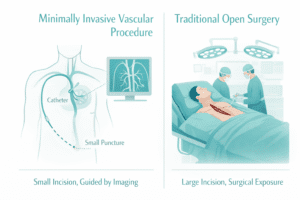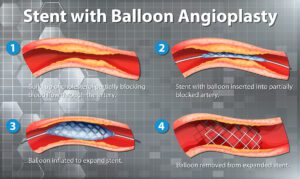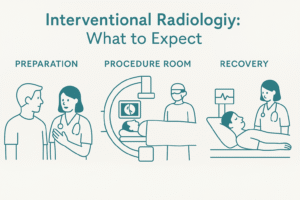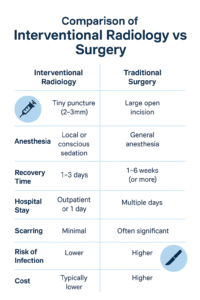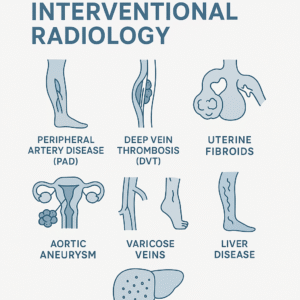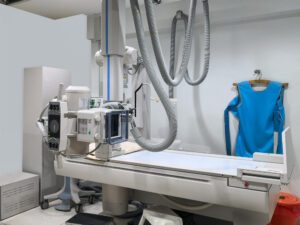Your body’s vascular system is a complex network of arteries, veins, and capillaries that keeps your organs and tissues nourished and functioning. When problems arise in this vital system—such as blockages, blood clots, or weakened vessels—a vascular doctor plays a critical role in diagnosing, treating, and managing these conditions.
At Aria Vascular, our specialists are dedicated to keeping your blood vessels healthy through expert care, advanced technology, and personalized treatment plans.

What Is a Vascular Doctor?
A vascular doctor is a medical professional who focuses on treating diseases and disorders of the blood vessels. These include arteries, which carry oxygen-rich blood from the heart to the body, and veins, which return oxygen-depleted blood back to the heart. Unlike cardiologists who treat the heart, vascular doctors treat everything outside the heart—especially in the legs, arms, brain, abdomen, and neck.
Common Conditions Treated
Vascular doctors manage a wide range of conditions, including:
- Peripheral Artery Disease (PAD)
- Deep Vein Thrombosis (DVT)
- Aneurysms
- Varicose Veins
- Carotid Artery Disease
- Pulmonary Embolism
- Aortic Dissections
- Raynaud’s Disease
- Vasculitis
- Dialysis Access Planning
These conditions can cause pain, swelling, skin discoloration, fatigue, or even life-threatening emergencies like strokes or embolisms.
When Should You See a Vascular Doctor?
You may benefit from seeing a vascular specialist if you:
- Have leg pain , cramping, or swelling
- Experience chest pain during physical activity
- Have a family history of vascular disease
- Are at high risk due to smoking, diabetes , or high blood pressure
- Have been diagnosed with high cholesterol
- Were referred by your primary care physician
Early intervention can prevent complications and lead to better long-term outcomes.
Types of Vascular Specialists
There are several types of vascular experts:
- Vascular Surgeons – Perform open and minimally invasive surgery
- Endovascular Surgeons – Specialize in catheter-based procedures
- PAD Specialists – Focus on managing peripheral artery disease
- Vein Specialists – Treat varicose veins, spider veins, and venous insufficiency
How Do Vascular Doctors Diagnose Problems?
To evaluate blood flow and detect abnormalities, vascular doctors use specialized tests, such as:
- Vascular Ultrasound
- CT or MR Angiogram
- Catheter Angiogram
- Venogram
- Ankle-Brachial Index (ABI)
These imaging tools help assess the severity of blockages or abnormalities and guide treatment planning.
Treatment Options Available
Depending on your diagnosis, treatment may include:
- Lifestyle Changes – Smoking cessation, diet, and exercise
- Medication – To manage blood pressure, cholesterol, or prevent clots
- Minimally Invasive Procedures – Such as angioplasty and stenting
- Surgical Intervention – For severe cases like aneurysm repair or bypass
At Aria Vascular, we tailor your care to your specific needs, using evidence-based approaches that promote healing and long-term vascular health.
When to See a Vascular Specialist
You should consult a vascular specialist if you:
- Experience leg pain when walking or resting
- Have non-healing wounds or changes in skin color
- Are over 50 with a history of smoking or diabetes
- Have been diagnosed with high blood pressure or cholesterol
Early diagnosis allows for lifestyle-based management and minimally invasive treatments that can prevent major complications.

Working With Your Healthcare Team
Vascular doctors often collaborate with your primary care physician, cardiologist, nephrologist, or endocrinologist to ensure comprehensive care—especially if you have multiple health concerns like diabetes or kidney disease.
Take the First Step Toward Vascular Health
If you’re experiencing symptoms or have risk factors for vascular disease, don’t wait. Early diagnosis and treatment can prevent serious complications. At Aria Vascular, our experienced team is here to guide you every step of the way—offering compassionate, expert care to protect your circulatory health.
Frequently Asked Questions about Vascular Surgeons
What is a vascular surgeon?
A vascular surgeon is a doctor who treats diseases of the arteries and veins using both surgery and less invasive methods.
Do all vascular patients need surgery?
No. Many vascular issues can be treated with medications, lifestyle changes, or non-surgical procedures.
What’s the difference between a vascular surgeon and a cardiologist?
Cardiologists treat the heart. Vascular surgeons treat arteries and veins throughout the rest of the body.
How do I know if I need a vascular surgeon?
If you have symptoms like leg pain, swelling, or slow-healing wounds—or risk factors like smoking or diabetes—you may benefit from seeing a vascular surgeon.

